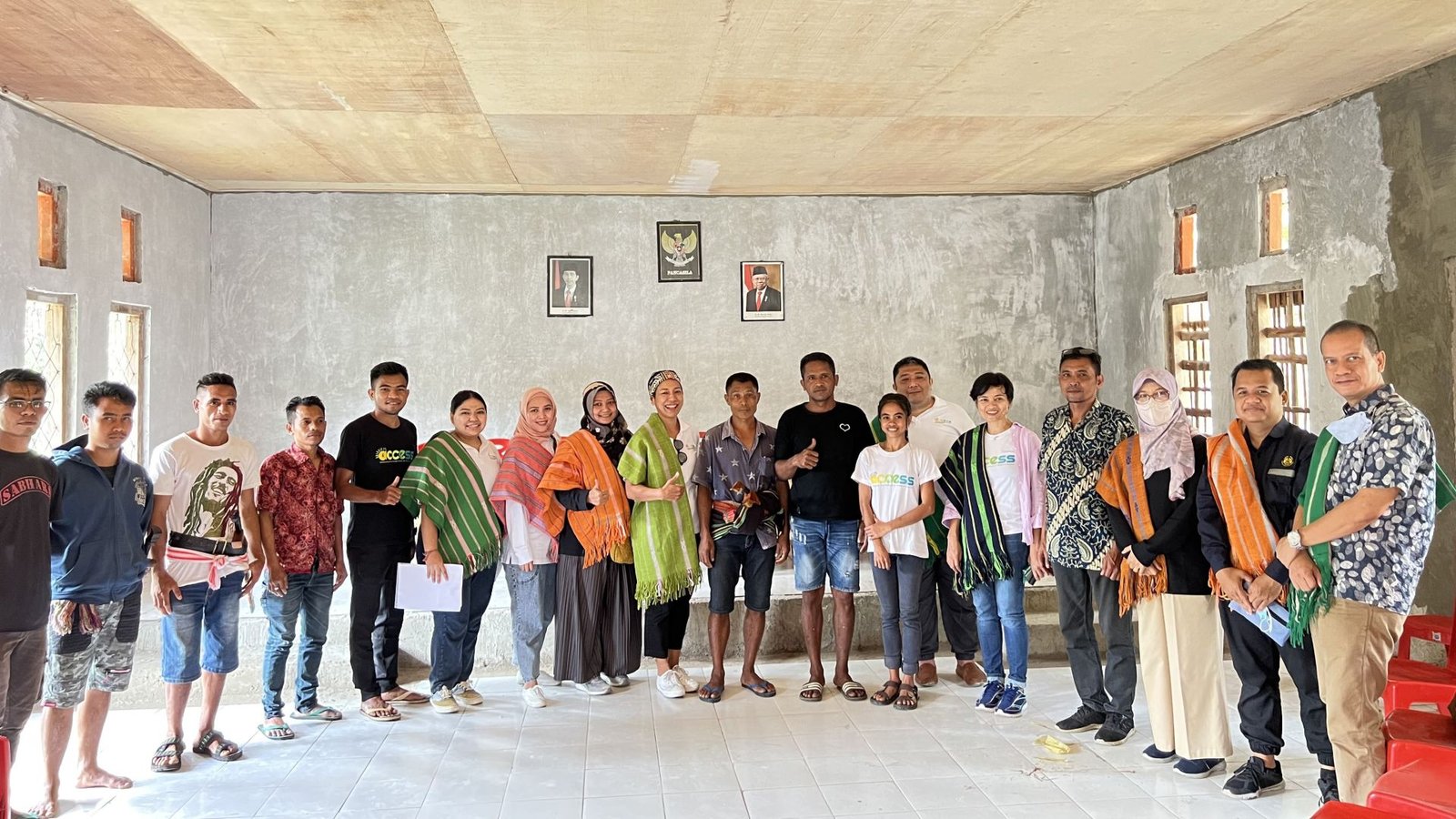
Local Ownership and the Role of Village Institutions in Community-Based Electricity: Outreach Workshop in Sumba
To support the Renewable Energy Infrastructure Special Allocation Fund (DAK-IET) program for Fiscal Year 2023, the ACCESS Project together with the Ministry of Energy and Mineral Resources (MEMR) and the Ministry of Villages, Development of Disadvantaged Regions, and Transmigration carried out socialization to the village, sub-district, district, and provincial representatives on the role of local institutions in ensuring the sustainability of renewable energy on September 30, 2022 in Tambolaka, Southwest Sumba Regency.
The socialization aims to increase local knowledge of the importance of local institutions, more specifically for villages in Sumba Island (West Sumba, Southwest Sumba, Central Sumba, and East Sumba Regencies) as target recipients of the DAK-IET 2023. Access to energy is among the Indonesian government's top development priorities, given its status as a basic necessity for citizens. However, many individuals, particularly in NTT, still lack access to electricity. Fortunately, Indonesia possesses ample renewable energy sources that can help to increase the electrification ratio, particularly in remote areas.
The Province of East Nusa Tenggara has submitted a proposal to the Ministry of Energy and Mineral Resources for the 2023 DAK program, recommending 33 villages in Sumba Island. Using a scoring system to evaluate the proposals, MEMR has approved the top 21 villages, with the caveat that their respective village heads are informed of the program's details from the outset.
A crucial aspect of this initiative is the involvement of BUM Desa in managing the village's electricity infrastructure. It is expected that the village and BUM Desa can maintain the infrastructure while also enabling local operators to increase their capacity.
In this event, the ACCESS Project shared its experience in the local institution development and capacity building, from the open and transparent selection process, consultation with sub-district and district governments, and training of the selected community members. ACCESS also shared the importance of village facilitators throughout the process. By promoting transparency and community participation, the sense of ownership among residents can be enhanced, leading to sustainable implementation and supervision of BUM Desa in managing electricity. This is crucial for the success of the 2023 DAK program, which requires community-level socialization. To support this program, the Ministry of Villages committed to assigning and deploying village facilitators to the 21 village recipients of DAK in Sumba Island. These facilitators have the expertise to strengthen BUM Desa management and promote local economic development by maximizing the use of existing electricity.
One of the recommendations from this event is that a written memo/socialization is needed to serve as a reference for implementation, including a) Circular/Explanation letter from the Ministry of Village: The use of Village Capital Participation to BUM Desa Can be Used for BUM Desa Operational Costs in Village Electricity Management, b) Circular/Explanation from the Provincial Government: Process and Status of Renewable Energy Infrastructure DAK Assets 2022-2023 as Provincial Assets Handed Over to BUM Desa.
With implementing transparent mechanisms as described above, it is expected that a strong BUM Desa institution will be established to support the sustainability of rural electricity in Sumba in the future. The collaboration between the Ministry of Energy and Mineral Resources and the Ministry of Village, Development of Disadvantaged Regions, and Transmigration is a valuable and necessary factor for the villages to move forward. Effective collaboration between government institutions can ensure the success of rural electrification programs, which will lead to the improvement of rural livelihoods and the overall development of the region.
"To strengthen BUM Desa as a local village electricity management agency, cooperation between the Ministry of Energy and Mineral Resources and the Ministry of Villages is needed, especially in the aspect of assigning village assistants who are already trained to help strengthen BUM Desa and can also facilitate training of local operators and strengthening the local economy," explained Verania Andria, a senior advisor to UNDP Indonesia. She added, "Village facilitators need to be equipped with the ability to train in this matter," when discussing one of the recommendation points from the FGD results.
Author: Sugiyanto
